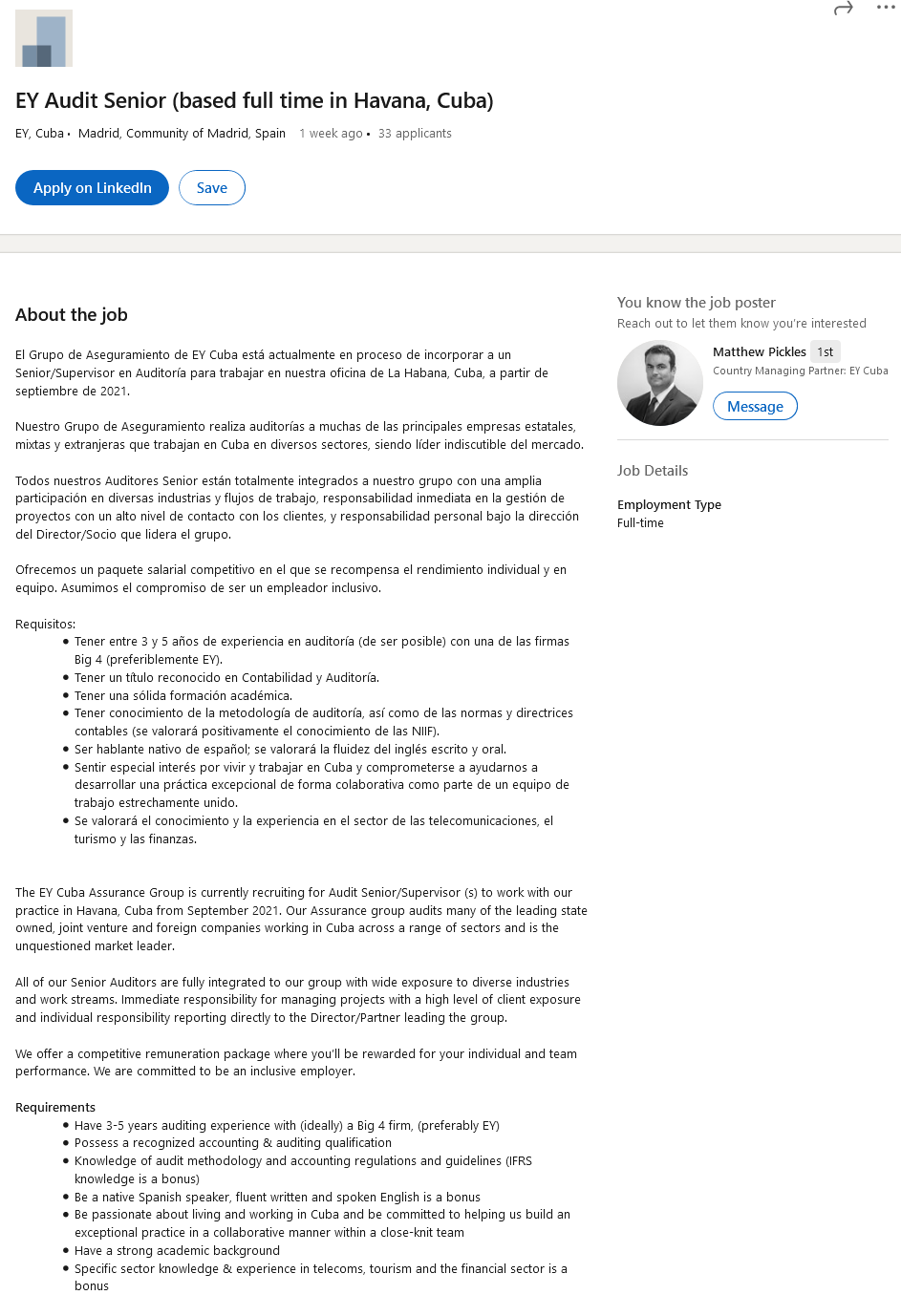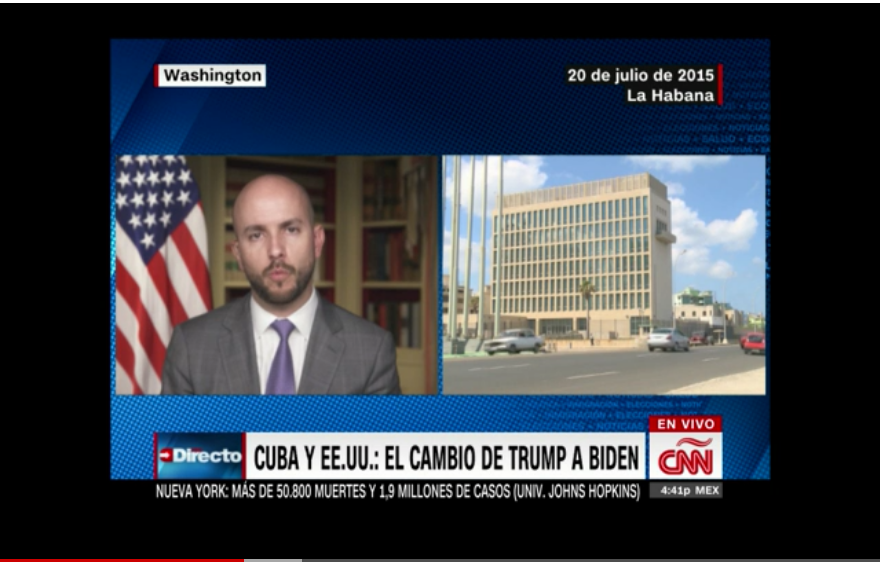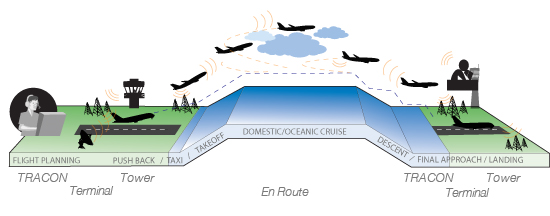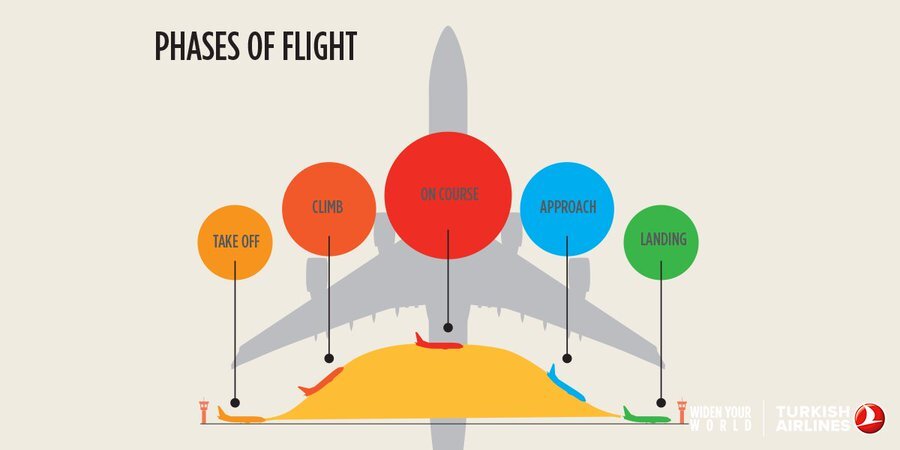EC/EU May Today Find End Of “Comity” By United States Courts
After One Year Waiting, EC/EU May Have Run Out Of Time
Will Answer Be Defend Or Ignore?
If No Defense, Millions Of Dollars Of Judgements Expected Quickly
UK Guidance May Be Model
37 Law Firms Awaiting Answer
List Of EU-Related Lawsuits
Mr. Hermenegildo Altozano, an attorney with Madrid, Spain-based Bird & Bird, to a United States District Court: “On April 15, 2020, I filed an Application for Authorisation under Article 5 paragraph 2 of Council Regulation (EC) No 2271/96 of 22 November 1996 protecting against the effects of the extra-territorial application of legislation adopted by a third country, and actions based thereon or resulting therefrom, on behalf of the Spanish company Iberostar Hoteles y Apartamentos S.L.U. ("Iberostar").”
The United States District Court hearing the lawsuit filed using Title III of the Cuban Liberty and Democratic Solidarity Act of 1996 (known as “Libertad Act”) granted the defendant’s Motion to Stay Proceedings and required a status report every thirty days.
A soon-to-be expected and not unlikely decision by the Brussels, Belgium-based European Commission (EC) on behalf of the twenty-seven members of the Brussels, Belgium-based (EU) would be to authorize EU-based defendants to proceed with their individual and collective defenses in lawsuits filed and lawsuits to be filed. The EC/EU position could be that until there is a lawsuit verdict, settlement, or judgement, premature for the EC/EU to unilaterally constrict and disarm defendants, particularly as some of the defendants have commenced their defenses and have available assets within the United States that could be subject to the execution of a judgement from a court.
For the EC/EU to resolve its twenty-five-year issue with the exterritorial application of Title III of the Libertad Act, at least one of the lawsuits need result in a verdict against an EU-based defendant and the plaintiff need to have seized an asset of the defendant. Only then will the EC/EU have the full implementation of Title III and the result of Title III from which to defend its interests- both in courts throughout the world and in its bilateral relationship with the United States- currently represented by the [Joseph] Biden Administration.
The Trump Administration on 2 May 2019 made operational Title III of the Libertad Act which authorizes lawsuits in United States District Courts against companies and individuals who are using a certified claim or non-certified claim where the owner of the certified claim or non-certified claim has not received compensation from the Republic of Cuba or from a third-party who is using (“trafficking”) the asset.
Thirty-six (36) Libertad Act Title III lawsuits have been filed in United States District Courts. Some of the lawsuits have since been appealed, consolidated, dismissed, refiled, reversed, and transferred within districts and from district to district. Some defendants have been dismissed, but cases continue with other defendants.
EU-based defendants total 2019 revenues were US$158 Billion. EU-based defendants in Libertad Act Title III lawsuits include: Copenhagen, Denmark-based A.P. Moller-Maersk A/S (2019 revenue approximately US$39 billion); Paris, France-based BNP Paribas (2019 revenue approximately US$49 billion); Amsterdam, Netherlands-based Booking.com B.V. (2019 revenue approximately US$15 billion); Palma, Spain-based Iberostar Hoteles y Apartamentos S.L. (2019 revenue approximately US$2.6 billion); Palma, Spain-based Melia Hotels International S.A. (2019 revenue approximately US$2 billion); Paris, France-based Pernod Ricard S.A. (2019 revenue approximately US$10.5 billion); Paris, France-based Société Générale S.A. (2019 revenue approximately US$27.4 billion); and Dusseldorf, Germany-based Trivago GmbH (2019 revenue approximately US$940 million). Additional lawsuits are expected to be filed. Madrid, Spain-based NH Hotel Group S.A. (2019 revenues approximately US$1.9 billion) was a defendant in a lawsuit, but the lawsuit was dismissed by the plaintiff.
A diplomatic challenge for EC President von der Leyen and EC HRVP Borrell Fontelles. President von der Leyen served in three cabinet positions and was the longest serving member of Chancellor Angela Merkel’s cabinet; and Libertad Act Title III defendant Trivago GmbH is headquartered in Germany. HRVP Borrell Fontelles was Minister of Foreign Affairs, EU and Cooperation of the Kingdom of Spain; and Libertad Act Title III defendants Melia Hotels International S.A. and Iberostar Hoteles y Apartamentos S.L. are both headquartered in Spain.
The EC/EU is expecting that United States Courts will be differential to the EC/EU due to the impact of the pandemic in 2020 and thus far in 2021, and due to the uniqueness of the request by defendants to the EC: First, the request requires addressing a statue enacted in 1996 which remained inactive until 2019 due to annual six-month suspensions by the Clinton Administration (1993-2001), Bush Administration (2001-2009), Obama Administration (2009-2017) and through the first half of the Trump Administration (2017-2021) and Second, the EC, as the administrative body of the twenty-seven member EU, needs to consult all members prior to providing an answer. 15 April 2021 is one year since an attorney representing Iberostar Hoteles y Apartamentos S.L. wrote to the EC requesting guidance as to how to proceed with its defense.
For the thirty-six lawsuits filed since May 2019 United States Courts have been patient to provide plaintiffs and defendants with latitude and opportunity to fully present their positions. Many of the lawsuits involve complicated issues including who has standing to file a lawsuit, when was the claim obtained, and sovereign immunity, among others.
United States Courts might provide one final thirty-day stay before permitting the plaintiffs to continue with their lawsuits. Plaintiffs have continued to argue that they are afforded a prompt and speedy process and one year is far too long- particularly when the government of the United Kingdom (which was a member of the EU when “trafficking” allegations took place) required approximately five months to provide guidance to Libertad Act Title III lawsuit defendant Bristol, United Kingdom-based Imperial Brands plc (2019 revenues approximately US$40 billion). LINK https://www.cubatrade.org/blog/2021/3/19/uk-government-authorizes-imperial-brands-to-defend-itself-in-libertad-act-lawsuit-eu-based-defendants-continue-to-wait-for-guidance?rq=imperial
LINK To Libertad Act Title III Lawsuit Statistics
The following Libertad Act Title III lawsuits have included defendants whose headquarters are located within EU-member countries:
MARIA DOLORES CANTO MARTI, AS PERSONAL REPRESENTATIVE OF THE ESTATES OF DOLORES MARTI MERCADE AND FERNANDO CANTO BORY V. IBEROSTAR HOTELES Y APARTAMENTOS SL [1:20-cv-20078; Southern Florida District]
Zumpano Patricios P.A. (plaintiff)
Bird & Bird (defendant)
Holland & Knight (defendant)
LINK To Filing: https://www.cubatrade.org/blog/2021/3/31/5bwdppnioq78zadaro67r3pvk7hr8l
ODETTE BLANCO DE FERNANDEZ née BLANCO ROSELL; EMMA RUTH BLANCO, in her personal capacity, and as Personal Representative of the ESTATE OF ALFREDO BLANCO ROSELL, JR; HEBE BLANCO MIYARES, in her personal capacity, and as Personal Representative of the ESTATE OF BYRON BLANCO ROSELL; SERGIO BLANCO DE LA TORRE, in his personal capacity, and as Administrator Ad Litem of the ESTATE OF ENRIQUE BLANCO ROSELL; EDUARDO BLANCO DE LA TORRE, as Administrator Ad Litem of the ESTATE OF FLORENTINO BLANCO ROSELL; LIANA MARIA BLANCO; SUSANNAH VALENTINA BLANCO; LYDIA BLANCO BONAFONTE; JACQUELINE M. DELGADO; BYRON DIAZ BLANCO, JR.; MAGDELENA BLANCO MONTOTO; FLORENTINO BLANCO DE LA TORRE; JOSEPH E. BUSHMAN; CARLOS BLANCO DE LA TORRE; and GUILLERMO BLANCO DE LA TORRE VERSUS A.P. MOLLER-MAERSK A/S (a/k/a A.P. MOLLER-MAERSK GROUP); MAERSK A/S (a/k/a MAERSK LINE A/S); MAERSK, INC.; and MAERSK AGENCY U.S.A., INC [2:21-cv-00339 Eastern District of Louisiana]
Pusateri, Johnston, Guillot & Greenbaum, LLC (plaintiff)
Berliner Corcoran & Rowe LLP (plaintiff)
Fields PLLC (plaintiff)
JUAN B. PUJOL MOREIRA, in his personal capacity, and as Personal Representative and Administrator of the ESTATE OF NIEVES PUJOL, a/k/a NIEVES MOREIRA MARTINEZ, MARIA JULIA PUJOL MOREIRA, INES MARIA PUJOL FAGET, as Personal Representative and Executor of the ESTATE OF ARCADIO JOAQUIN PUJOL IZQUIERDO, SARA L. PUJOL, as Personal Representative and Administrator of the ESTATE OF LAUREANO PUJOL ROJAS, LUIS R. PUJOL ROJAS, ANA H. FRAGA, LORENZO PEREZ PUJOL, FRANCISCO PUJOL MENESES, PILAR M. PUJOL MENESES, and RAUL PUJOL MENESES, Plaintiffs, v. SOCIETE GENERALE, S.A. and BNP PARIBAS, S.A. [1:20-cv-09380; Southern District Of New York]
Kozyak Tropin & Throckmorton, LLP (plaintiff)
MoloLamken LLC (plaintiff)
OSVALDO SOTO V. BOOKING.COM B.V. AND BOOKING HOLDINGS INC. [1:20-cv-24044; Southern Florida District]
Rivero Mestre LLP (plaintiff)
Manuel Vazquez PA (plaintiff)
JOHN S. SHEPARD FAMILY TRUST, THROUGH JOHN S. SHEPARD AND LAWRENCE JAFFE, AS CO-TRUSTEES, V. NH HOTELS USA, INC., NH HOTEL GROUP, S.A., AND JOLLY HOTELS U.S.A., INC. [1-19-cv-09026; Southern District New York]. Case dismissed by plaintiff without prejudice on 26 February 2020.
Aronovitz Law (plaintiff)
Kantrowitz, Goldhamer, & Graifman (plaintiff)
Bracewell (defendant)
Bird & Bird (defendant)
Law Offices of Robert L. Muse (defendant)
SUCESORES DE DON CARLOS NUNEZ Y DONA PURA GALVEZ, INC., BDA BANO NUNEZ V. SOCIÉTÉ GÉNÉRALE, S.A., D/B/A SG AMERICAS, INC.; THE BANK OF NOVA SCOTIA, D/B/A SCOTIA HOLDINGS (US) INC., A/K/A THE BANK OF NOVA SCOTIA, MIAMI AGENCY; THE NATIONAL BANK OF CANADA, D/B/A NATIONAL BANK OF CANADA FINANCIAL GROUP, INC.; AND BANCO BILBAO VIZCAYA ARGENTARIA, S.A., D/B/A BBVA, USA., [1:19-cv-22842; Southern Florida District]. NOTE: Case transferred to New York Southern District On 2 February 2020 [1:20-cv-00851]. Current defendants Societe Generale, S.A. and BNP Paribas, S.A.
Kozyak Tropin & Throckmorton, LLP (plaintiff)
Law Offices Of Paul Sack P.A. (plaintiff)
MoloLamken LLC (plaintiff)
Cleary Gottlieb Steen & Hamilton (defendant)
Mayer Brown LLP (defendant)
Reed Smith LLP (defendant)
Astigarraga Davis Mullins & Grossman (defendant)
DIEGO TRINIDAD v. EXPEDIA, INC., HOTELS.COM L.P., HOTELS.COM GP, LLC, ORBITZ, LLC, BOOKING.COM B.V., BOOKING HOLDINGS INC. [1:19-cv-22629; Southern Florida District] Case dismissed with leave to amend on 16 November 2020.
Rivero Mestre (plaintiff)
Manuel Vazquez (plaintiff)
Akerman LLP (defendant- Expedia Group, Inc., Expedia, Inc.)
Scott Douglass & McConnico LLP (defendant- terminated 2/12/20))
Baker & McKenzie (defendant- Booking Holdings, Inc., Booking.com B.V.)
MARICELA MATA, ET. AL., V. MELIA HOTELS INTERNATIONAL, S.A., ET AL. [1:19-cv-22529; Southern Florida District]. NOTE: On 2 January 2020, thirty-five plaintiffs were dismissed, and eight defendants were dismissed without prejudice Melia Hotels International, S.A.; Melia Hotels USA LLC, Trivago GMBH, Grupo Hotelero Gran Caribe, Corporacion de Comercio y Turismo Internacional Cubanacan S.A.; Grupo de Turismo Gaviota S.A.; Raul Doe 1-5, and Mariela Roe 1-5. The case is now known as Maricela Mata, et al. v. Expedia, Inc., et. al.
Rivero Mestre LLP (plaintiff)
Manuel Vazquez, P.A. (plaintiff)
Arent Fox (defendant- Melia Hotels)
Coffey Burlington, P.P. (defendant- Melia Hotels)
Akerman LLP (defendant) for Expedia, Inc.; Hotels.com L.P.; Hotels.com GP, LLC; Orbitz, LLC; and Travelocity.com, LP
Scott Douglass & McConnico LLP (defendant) for Expedia, Inc.; Hotels.com L.P.; Hotels.com GP, LLC; Orbitz, LLC; and Travelocity.com, LP
Baker & McKenzie LLP (defendant) for Booking Holdings Inc. and Booking.com B.V.
ROBERT M. GLEN V. EXPEDIA GROUP, INC., EXPEDIA GROUP, INC., TRIP ADVISOR LLC, TRIP ADVISOR, INC., ORBITZ, LLC, TRIP NETWORK, INC. D/B/A CHEAPTICKETS, KAYAK SOFTWARE CORPORATION, BOOKING HOLDINGS, INC., HOTELS.COM GP, LLC, HOTELS.COM L.P., TRAVELSCAPE LLC D/B/A TRAVELOCITY [1:19-cv-01809; Delaware District]
Reid Collins & Tsai (plaintiff)
Rosenthal, Monhait & Goddess, P.A. (plaintiff; law firm since closed; replaced by Andrews & Springer)
Ewusiak Law, P.A. (plaintiff)
Andrews & Springer (plaintiff)
Morris, Nichols, Arsht & Tunnell (defendant- Booking Holdings & Kayak Software Corporation)
Baker & McKenzie (defendant- Booking Holdings & Kayak Software Corporation)
Scott Douglass & McConnico (defendant- Expedia, Inc.; Expedia Group, Inc.; Hotels.com, L.P.; Hotels.com GP, LLC; Travelscape LLC d/b/a/ Travelocity; Orbitz, LLC; Trip Network, Inc. d/b/a/ Cheap Tickets)
Potter Anderson & Corroon (defendant- TripAdvisor)
Ballard Spahr LLP (defendant- Expedia, Inc.; Expedia Group, Inc.; Hotels.com, L.P.; Hotels.com GP, LLC; Travelscape LLC d/b/a/ Travelocity; Orbitz, LLC; Trip Network, Inc. d/b/a/ Cheap Tickets)
Cooch & Taylor, P.A. (amicus)
MARIO ECHEVARRIA, ESTHER SANCHEZ, CONSUELO CUEVAS, AND CARMEN FLORIDO V. EXPEDIA, INC., TRIVAGO GMBLJ, A GERMAN LIMITED LIABILITY COMPANY, BOOKING.COM B.V., A DUTCH LIMITED LIABILITY COMPANY, GRUPO HOTELERO GRAN CARIBE, CORPORACION DE COMERCIO Y TURISMO INTERNACIONAL CUBANACAN S.A., GRUPO DE TURISMO GAVIOTA S.A., RAUL DOE 1-5, AND MARIELA ROE 1-5, [1:19-cv-22620; Southern Florida District]. Lawsuit dismissed with leave to amend on 16 November 2020.
Rivero Mestre LLP (plaintiff)
Manuel Vazquez, P.A. (plaintiff)
Baker & McKenzie (defendant- Booking Holdings, Inc., Booking.com B.V.)
Scott Douglas & McConnico LLP (defendant- Expedia, Inc., Hotels.com GP, LLC, Hotels.com L.P., Orbitz, LLC)
Akerman LLP (defendant- Expedia, Inc., Hotels,com GP, LLC, Hotels.com L.P., Orbitz, LLC)
MARIO ECHEVARRIA, ESTHER SANCHEZ, CONSUELO CUEVAS, AND CARMEN FLORIDO V. EXPEDIA, INC., HOTELS.COM L.P., HOTELS.COM GP, LLC, ORBITZ, LLC, BOOKING.COM B.V., AND BOOKING HOLDINGS, INC. Initial defendants were: TRIVAGO GMBH, BOOKING.COM B.V., GRUPO HOTELERO GRAN CARIBE, CORPORACION DE COMERCIO Y TURISMO INTERNACIONAL CUBANACAN S.A., GRUPO DE TURISMO GAVIOTA S.A., RAUL DOE I-5, AND MARIELA ROE 1-5, [1:19-cv-22621; Southern Florida District]. Lawsuit dismissed with leave to amend on 16 November 2020.
Rivero Mestre LLP (plaintiff)
Manuel Vazquez, P.A. (plaintiff)
Baker & McKenzie, LLP (defendant- Booking Holdings, Booking.com. B.A.)
MARIO DEL VALLE, ENRIQUE FALLA, MARIO ECHEVARRIA V. EXPEDIA, INC., HOTELS.COM L.P., HOTELS.COM GP, ORBITZ, LLC, BOOKING.COM B.V., BOOKING HOLDINGS INC. Initial defendants were: TRIVAGO GMBH, BOOKING.COM B.V., GRUPO HOTELERO GRAN CARIBE, CORPORACION DE COMERCIO Y TURISMO INTERNACIONAL CUBANACAN S.A., GRUPO DE TURISMO GAVIOTA S.A., RAUL DOE I-5, AND MARIELA ROE 1-5, [1:19-cv-22619 Southern Florida District; 20-12407 11th Circuit Court of Appeals]
Rivero Mestre LLP (plaintiff)
Manuel Vazquez, P.A. (plaintiff)
Baker & McKenzie, LLP (defendant)
Scott Douglass & McConnico (defendant)
Akerman (defendant)
MARLENE CUETO IGLESIAS AND MARIAM IGLESIAS ALVAREZ V. PERNOD RICARD [1:20-cv-20157; Southern Florida District]
IPS Legal Group, P.A. (plaintiff)
Law Offices of Andre G. Raikhelson LLC (plaintiff)
Ainsworth & Clancy PLLC (plaintiff)
Carlton Fields P.A. (defendant)
Carlton Fields Jorden Burt, P.A. (defendant)
LINK TO COMPLETE ANALYSIS IN PDF FORMAT










































